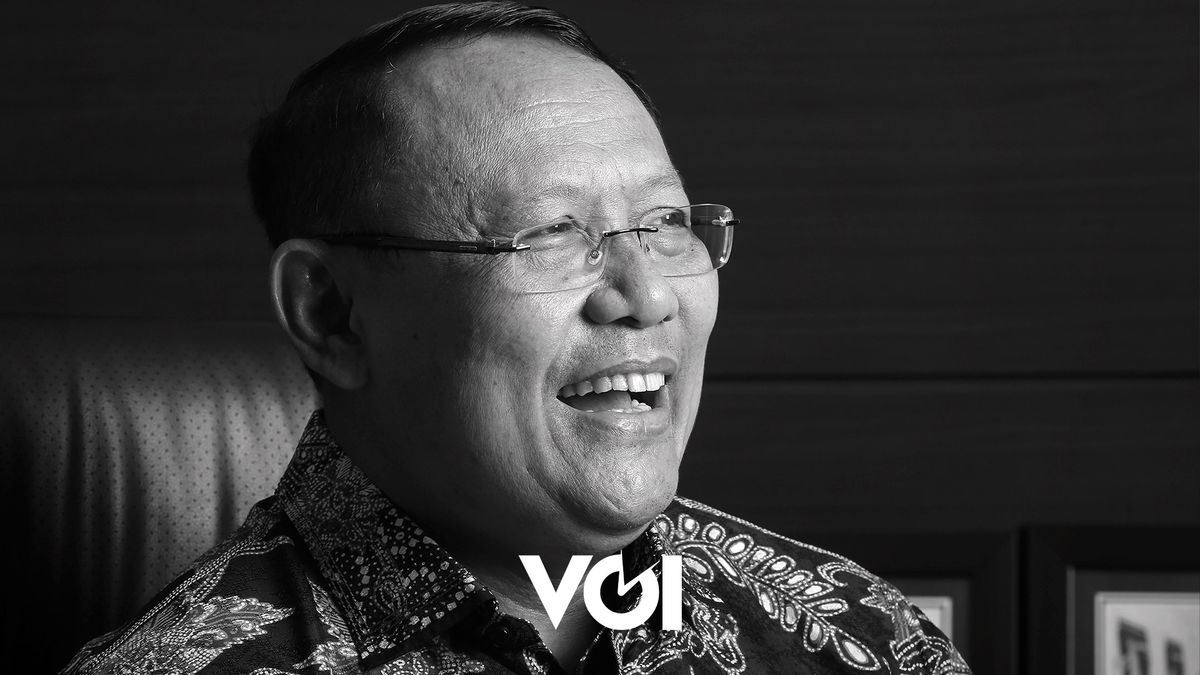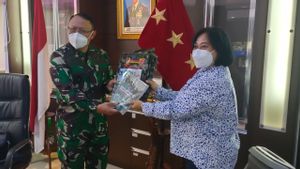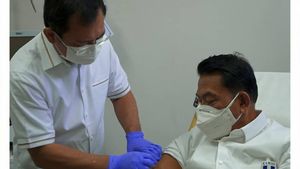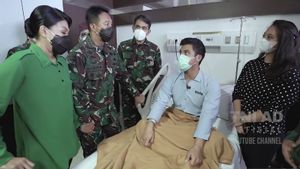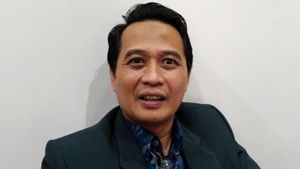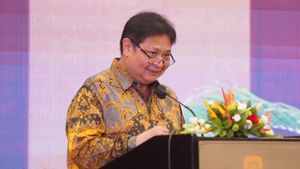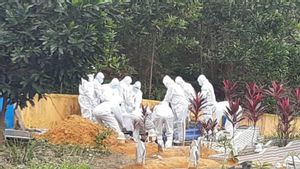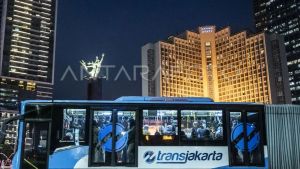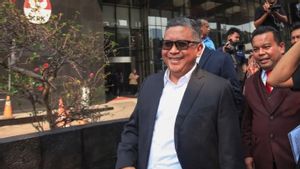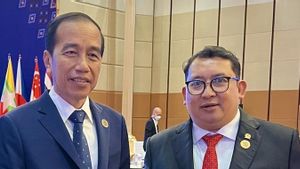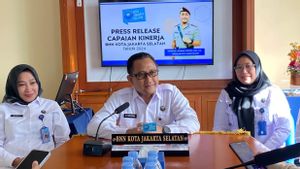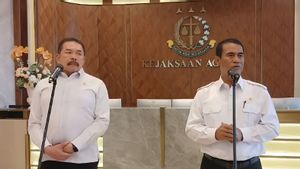Vaccination is one of the efforts made to contain the spread of COVID-19. Vaccines that are injected can increase immunity or immunity. The superpowers in the health sector are competing to make vaccines. Scientists in Indonesia also do not want to be left behind with the Nusantara vaccine and the Red and White Vaccine which are still in the development process. How far is the process of developing the Nusantara vaccine at this time? The head of the Gatot Soebroto Army Hospital, Lt. Gen. of the TNI, dr. Albertus Budi Sulistya, Sp.ENT-KL., MARS, shared a story about the progress of the vaccine developed by dr. Terawan Agus Putranto.
***
In the midst of this corona pandemic, the government continues to encourage vaccination by cooperating with various parties. The desired goal of administering this vaccine is immunity to the individual being injected with the vaccine. When most people have received the vaccine, it is hoped that group immunity will be formed or commonly called herd immunity.
According to Lieutenant General TNI dr. Albertus Budi Sulistya, Sp.THT-KL., MARS, with enthusiasm and discipline, COVID-19 can actually be fought. "We can fight this COVID-19 with the Trisula weapon. These are 5M (maintaining distance, wearing masks, washing hands with soap, reducing mobility and avoiding crowds), 3T (testing, tracing, and treatment), and vaccination," he said.
Currently, various brands of vaccines have entered Indonesia. However, there is a vaccine developed by the nation's children that needs to be supported and appreciated, namely the Nusantara vaccine, which was developed by dr. Terawan Agus Putranto and the Red and White vaccine developed by Universitas Airlangga.
Indeed, until now the Nusantara vaccine is still in the service-based research stage. This means that the man who was born in Gunung Kidul, Yogyakarta, March 10, 1967, can already be given this vaccine, but in the context of limited services. "For the mass production of Nusantara vaccines, it has not been regulated nor has it been discussed. In my personal opinion, if this MoU is implemented, we will get data on the acquisition of immunity after the administration of dendritic cell therapy. Then it can be continued with another research that can be directed to mass production. The hope is for this Nusantara vaccine," he said.
He hopes that the process of developing the Nusantara vaccine can be completed and can help the community in dealing with COVID-19 which continues to mutate into various variants. To Edy Suherli, Savic Rabos, and Irfan Medianto from VOI, Albertus Budi Sulistya told a lot about the role of the RSPAD as the Highest Referral Hospital in the TNI, Presidential Hospital, and their work during this corona pandemic. This is the complete excerpt from the office of the Gatot Soebroto Army Hospital, Central Jakarta recently.

TNI Lt. Gen. dr. Albertus Budi Sulistya, Sp.THT-KL., MARS. (Photo: Savic Rabos, DI: Raga/VOI)
During this pandemic, what is the role of the RSPAD?
We received an appointment from the Ministry of Health to be the national referral hospital for COVID-19 cases since the beginning of the pandemic in January 2020, January 24 to be exact. We did consolidation and rehearsals. Who will be involved in handling this case. At that time his name was not COVID-19, it was still a pneumonia disease caused by the novel coronavirus. We improved standard operating procedures and tools of the Gatot Soebroto Army Hospital.
In February 2020 RSPADA Gatot Soebroto received a mandate from the Ministry of Health to hold a Table Top exercise in which we invited stakeholders related to the handling of the novel coronavirus, which if (the prediction at that time) an outbreak could be controlled. But in the development of time, this virus is very extraordinary. On March 8, 2020, WHO announced that the novel coronavirus had become a coronavirus pandemic or COVID-19.
What is the capacity for COVID-19 patients at the Gatot Soebaroto Hospital?
At the start of the pandemic, we only had 9 beds for COVID-19 patients. However, because this case jumped dramatically, the number of beds also increased. It had reached 330 beds in December 2020. After that, it had dropped until Idul Fitri 2021. At that time our BOR was only 20 percent. However, two weeks after Eid al-Fitr, the cases of Return increased. At the beginning of July, the higher the RSPAD increased the number of beds to 478. If we calculate that we have 750 beds, so 478 is about 56% of the existing beds.
What about the field hospital at the RSPAD?
The TNI Commander is concerned and wants to play a role in helping the increasing number of COVID-19 patients. That's why the RSPAD parking lot has been converted into a field hospital since March 1, 2021. At that time the new bed capacity was 46. Due to the increasing number of COVID-19 patients, in early July 2021, the Army Chief of Staff and the TNI Commander decided that a field hospital was needed. new in this case from Yonkes 1 Kostrad. Here actually can fit 110 beds, but adjusted to 80 beds.

TNI Lt. Gen. dr. Albertus Budi Sulistya, Sp.THT-KL., MARS. (Photo: Savic Rabos, DI: Raga/VOI)
To serve so many patients, how many health workers are there?
Currently, we have 1,338 health workers involved, including doctors, nurses, and other health workers. That number includes volunteers from the Ministry of Health as many as 297 people. Then the BKO on the orders of Kasad had 30 doctors, 30 nurses, then 9 health analysts, 12 pharmacists, 12 oxygen distribution workers, 8 runners for oxygen filling, and there was also a scoping worker from Yonkes 1 Kostrad.
How many COVID-19 patients can be admitted here every day?
There are about 30 to 60 patients who enter through the ER per day depending on the availability of available beds. Not to mention the outpatient wearing the door can be outpatient can be an emergency. The recovery rate of incoming COVID-19 patients is around 90 percent. To date, 36,227 patients have been treated. 5,249 inpatients and the remaining 29,823 outpatients.
Ok now about the Nusantara Vaccine which was initiated by dr. Terawan Agus Putranto, how is the progress?
We need to say that the Nusantara vaccine, or in the memorandum of understanding, is mentioned as dendritic cell therapy which is comparable to the Nusantara vaccine. This vaccine is still in the research process. As we all know that the government in this case the Minister of Human Development and Culture (PMK) Muhadjir Effendy has initiated the MoU which was signed by the Minister of Health, Head of BPOM, Kasad as the Supervisory Board of Gatot Soebroto RSPAD, in the MoU, it was stated that dendritic cell therapy was still in the service-based research stage. This means that we can provide treatment in the context of service.
What are the obstacles in developing this Nusantara vaccine?
If there are obstacles, but so far it can still be passed. In the field, the obstacles faced are relatively non-existent. This means that if all research is carried out in accordance with the principles of good clinical practice, I think it can be completed properly.
另请阅读:
When is the estimation of the Nusantara vaccine mass-production?
In accordance with the MoU earlier, dendritic cell therapy is still on a service basis. For mass production of Nusantara vaccines, it has not been regulated nor has it been discussed. In my personal opinion, if this MoU is implemented, we will get data on the acquisition of immunity after the administration of dendritic cell therapy. Then it can be continued with another research that can be directed to mass production. The hope is so for this Nusantara vaccine.
How long is the estimation, sir?
If this really depends on all the systems involved in it, such as the research team, sponsors, and goodwill from the government to support this program. Oh, I see.
Many figures have volunteered for this Nusantara vaccine, how do you see it?
We need appreciation for the support that has been given. Currently, the importance of domestically produced vaccines is felt. This is interesting and hopefully, it will be a challenge for us to do something, by any means, please. It can be through the Nusantara vaccine or through the Red and White vaccine. The important thing is that all of them have good clinical practice principles. Hopefully, this can be realized soon.
What are your suggestions and hopes for people who are still ignoring the Health protocol?
It's really difficult if there are still people who ignore health protocols. If we read, it ends with three important pillars, namely the Trident. About 5M (maintaining distance, wearing masks, washing hands with soap, reducing mobility, and avoiding crowds), 3T (testing, tracing, and treatment), and vaccination. With this Trident weapon, we hope that together we can overcome the COVID-19 pandemic.
Three Recipes for Life Balance dr. Albertus Budi Sulistya

TNI Lt. Gen. dr. Albertus Budi Sulistya, Sp.THT-KL., MARS. (Photo: Savic Rabos, DI: Raga/VOI)
In living dr. Albertus Budi Sulistya applies three balances that must be carried out. Balance rest, balance nutrition, and exercise. Here are tips that he runs with his family.
For him, any exercise can be done, it doesn't have to be expensive sports. “For exercise, I often walk or use a treadmill or a machine that is used to run in place or on the road. Incidentally, there is also a treadmill at the Gatot Soebroto Army Hospital," he said.
But again for this sport, the husband of dr. Krismini Dwi Irianti, MARS does not have to be intentional, it turns out that it can be done while carrying out its activities as a doctor. “So it's not always pure exercise, walking in the office while visiting patients. It's also a sport," he said.
Now in this running business, he has a target to complete 7,000 steps every day. “My target every day is 7,000 steps. But if it is not achieved, at least in a week it can take 4 to five times to grow 7,000 steps,” said the man who also likes to play tennis.
Many people are embarrassed to admit that they had problems with their weight. However, Budi Sulistya admitted that he had been obese. And because of that, he did special therapy and consultation with a nutritionist to make his weight balanced. “I consulted a nutritionist. To overcome my obesity, I was advised to reduce my intake of fat, oil, fried foods, and the like,” he said.

TNI Lt. Gen. dr. Albertus Budi Sulistya, Sp.THT-KL., MARS. (Photo: Savic Rabos, DI: Raga/VOI)
In addition to fat, carbohydrates must also be controlled. “Even though I don't have diabetes myloitus, my intake of carbohydrates must also be limited to maintain my health. This was also suggested by the nutritionist where I consulted,” he continued. "What is advised to me is to increase my intake of vegetables and fruit," he said.
Not a young thing for the father of dr. A. Listianakristi Prabawati and Y. Krisnanto Adi Pirandito, S.Ked to reduce their food intake, which has become his favorite. But with a strong determination, he was slowly able to lose weight. “Initially, it was able to meet the target of losing one kilogram of weight per week. But during the corona pandemic, I was a bit loose. Because I want to eat enough so that I can stay fit during this pandemic," he said.
After successfully losing 8 kilograms, his body weight stagnates. So what is the actual reduction target recommended by nutritionists? “My nutritionist advised me to reach the target of 5 kilograms again and I had to lose weight. Pray that I can meet that target,” he pleaded.

TNI Lt. Gen. dr. Albertus Budi Sulistya, Sp.THT-KL., MARS. (Photo: Savic Rabos, DI: Raga/VOI)
In between his busy schedule as a doctor and also the highest leader in Gatot Soebroto Army Hospital, Budi Syulistya also likes to sing and dance. Incidentally, he has the same hobby as his beloved wife in dancing. "Because we have the same hobby of dancing as our wives, we often do couple dances with our wives. So the interactions meet when they sing together, dance sports,” he said.
One thing that Budi can do to avoid being forgotten by history is by writing. “A renewal begins with this research, an appeal to the younger generation and also me. Then write so that history is not forgotten. Develop talents according to the hobbies we have. Explore ourselves in order to find the talents we have optimally. Start with something you like or a hobby," said this 1992 alumni of the ABRI Sepamilsuk 189 and the Faculty of Medicine UGM.
To the younger generation who are the successors of this nation's struggle, Albertus Budi Sulistya conveyed the message. "I believe that every era has a hero and every hero will have a time. I am sure that today's young generation will become heroes in the future. The important thing is to channel your hobby in the right corridor. From there, you can be creative so that you can develop this hobby and become something worth being proud of,” said the man who has served military assignments in various countries such as Peru (2015), Turkey (2016), Timor Leste (2017), Hong Kong (2017). and Indian Timor (2017).
“Kita perlu apresiasi atas dukungan yang sudah diberikan. Saat ini terasa sekali pentingnya vaksin produksi dalam negeri. Ini yang menarik dan semoga menjadi tantangan kita bersama untuk berbuat, lewat jalur mana pun silahkan. Boleh lewat vaksin Nusantara atau lewat vaksin Merah Putih. Yang penting semuanya memiliki prinsip good-clinical practice. Semoga hal ini bisa segera terwujud.”
The English, Chinese, Japanese, Arabic, and French versions are automatically generated by the AI. So there may still be inaccuracies in translating, please always see Indonesian as our main language. (system supported by DigitalSiber.id)
